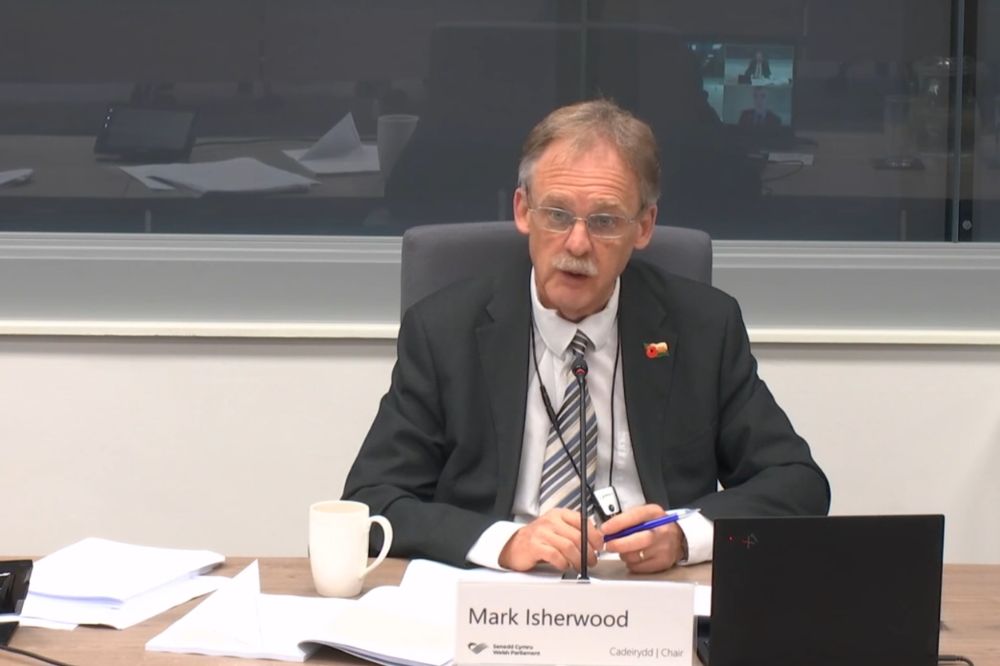Call for openness on council funding formula

Chris Haines – ICNN Senedd reporter
A cross-party committee called for greater transparency around the formula used to allocate funding to Welsh councils amid concerns about unfairness.
Mark Isherwood, who chairs the Senedd public accounts committee, raised a warning from Aberystwyth town council that the formula disproportionately disadvantages Ceredigion.
In a letter to the committee, Will Rowlands, the town council’s clerk, called for fair funding that adequately reflects the unique challenges in rural, less densely populated areas.
He wrote: “The formula, as it stands, has resulted in a significantly lower percentage of funding for our county, which is detrimental to the economic, cultural and educational wellbeing of our communities.”
Mr Rowlands raised concerns about a long-term risk of declining public services and infrastructure if the Welsh Government’s funding formula remains unchanged.
‘Oversight’
Mr Isherwood called for independent oversight, warning “turkeys don’t vote for Christmas”.
He said: “The winners are not going to want to sacrifice their position, metaphoric winners, I don’t mean they’re rolling in money but those who do better … to those that do less well.”
During a meeting on November 6, the Conservative cautioned that Ynys Môn, which has one of the lowest levels of prosperity per head, also has one of the lowest settlements.
Mr Isherwood added that Conwy, which has an older population, is one of the worst funded and he raised Audit Wales concerns about Flintshire council being at risk of bankruptcy.
He explained that ministers maintain the formula is reviewed annually, with the input of the Welsh Local Government Association (WLGA), the national voice of Wales’ 22 councils.
‘Fairness’
Labour’s Mike Hedges urged Welsh ministers to publish more detailed information, so people can judge the fairness of funding settlements.
He asked: “Why won’t the Welsh Government publish the standard spending assessments (SSAs) for each local authority and the calculations rather than just giving a final amount….
“No one can tell you whether this is right or wrong because all you’ve seen is the final numbers, you haven’t seen the calculations.”
Mr Hedges, who represents Swansea East, said: “It’s easy to say it’s unfair and I don’t think there’s a local authority in Wales that would say it’s fair because everyone feels either poverty or sparsity or the difficulty of being a large city are not in it.”
The former council leader stressed: “Until we get the calculations, showing not just the final result, then it’s just going to be everyone says ‘we’ve done badly’.
‘Transparency’
Adam Price echoed calls for greater transparency to aid scrutiny and public discussion, suggesting Audit Wales or another independent body could look into the formula.
The Plaid Cymru leader said it is unreasonable to expect the WLGA to come to a unified view because councils will all have a different interpretation of the need for change.
Adrian Crompton, the auditor general, told the committee Audit Wales plans to publish a report on financial sustainability of councils in the next month.
He said: “It won’t examine the make-up of the SSA formula in any great detail though it will flag that the formula … has been identified by a number of authorities as one of the issues that constrains them and adds to concerns around their financial position.”
Mr Crompton said he would be nervous about reviewing the formula because it would stray into policy questions but he agreed about the need for transparency.
Support our Nation today
For the price of a cup of coffee a month you can help us create an independent, not-for-profit, national news service for the people of Wales, by the people of Wales.





